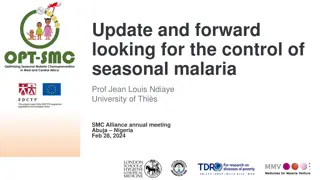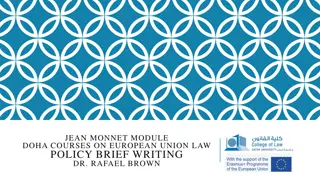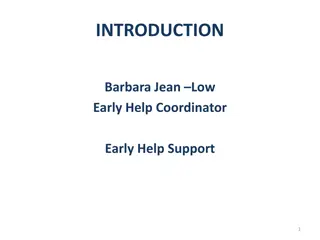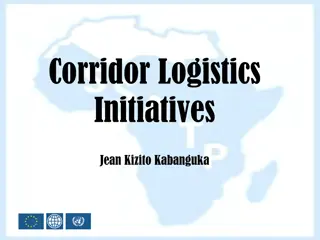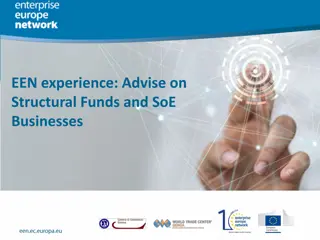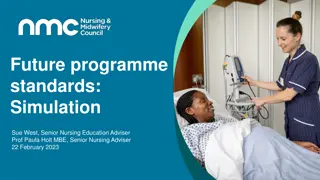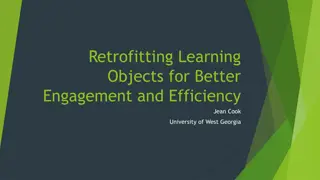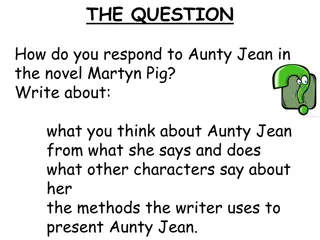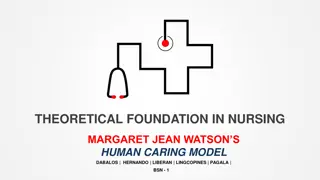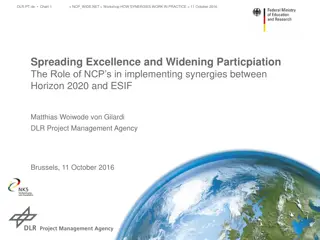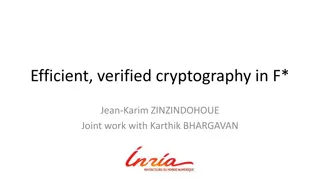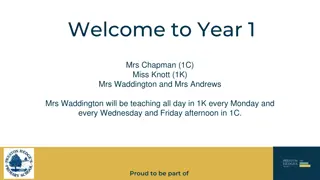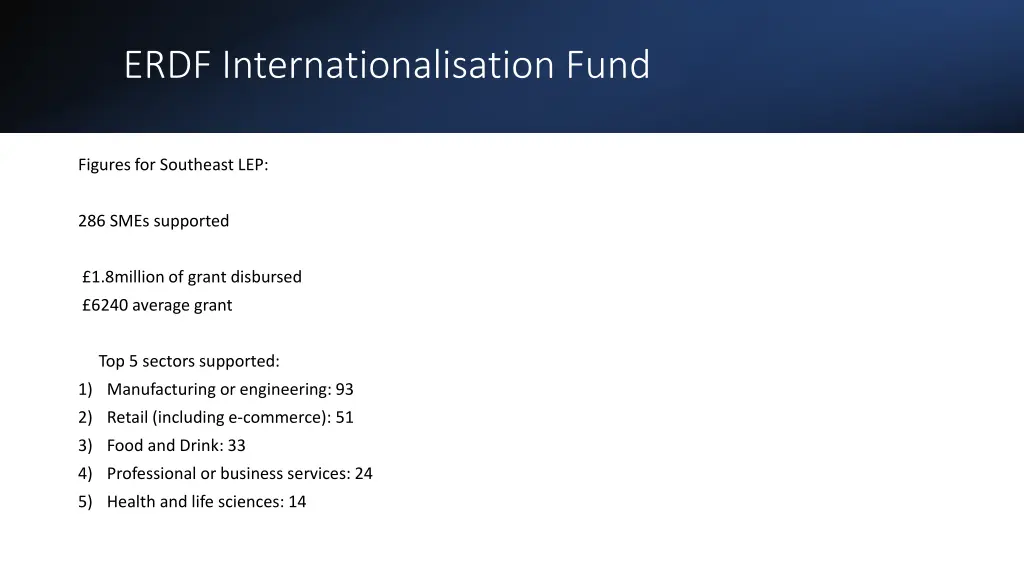
Key Lessons for Successful Grant Projects
Learn key lessons from an ERDF Internationalisation Fund project in the Southeast LEP region, involving support for 286 SMEs and a grant disbursal of 1.8 million. Discover insights on stakeholder engagement, training, online systems, customer focus, resource planning, and pandemic considerations.
Download Presentation

Please find below an Image/Link to download the presentation.
The content on the website is provided AS IS for your information and personal use only. It may not be sold, licensed, or shared on other websites without obtaining consent from the author. If you encounter any issues during the download, it is possible that the publisher has removed the file from their server.
You are allowed to download the files provided on this website for personal or commercial use, subject to the condition that they are used lawfully. All files are the property of their respective owners.
The content on the website is provided AS IS for your information and personal use only. It may not be sold, licensed, or shared on other websites without obtaining consent from the author.
E N D
Presentation Transcript
ERDF Internationalisation Fund Figures for Southeast LEP: 286 SMEs supported 1.8million of grant disbursed 6240 average grant Top 5 sectors supported: 1) Manufacturing or engineering: 93 2) Retail (including e-commerce): 51 3) Food and Drink: 33 4) Professional or business services: 24 5) Health and life sciences: 14
The key lessons are: Making sure any contractor or deliverer has a good knowledge of the objectives of the scheme and not just the processes and who the key stakeholders are. A stakeholder map would be beneficial. Allow enough time to not only train grant administrators in the processes but also what the project is trying to achieve e.g. in DBT s case not only helping to increase their exports but helping ITAs to achieve their export win targets. If using an online system, allow more time for it to be implemented, more technical support and ensure changes can be made easily. Using an online system was beneficial as it kept all the applications, claims and evidence in one place but once it was set up it was difficult to make changes to the system. Although clear guidance was provided to SMEs, they did not always read it, which led to more support being required than was originally anticipated.
The key lessons are: To deliver a scheme successfully it needs to be customer focused, with clear guidance, timely responses to queries and with consistent messaging from grant administrators. More support to ITAs and SMEs was required than anticipated to ensure compliant claims were received on time and which could be processed quickly. The project was designed to be automated and light touch but needed more resource to process the claims because most claims came in March 2023, with a lot of the activity by SMEs having been delayed due to the pandemic. We should have been stricter on ensuring SMEs put in claims 30 days after completing their activity, which would have helped the resource planning for processing claims but may have result in less claims. Covid type pandemics should be considered in the risk planning for future grant projects.
The key lessons are: Plan for exit from the start of the project. Due to issues with incomplete claims and missing information which went beyond the end of the contract staff resource to process claims became less. Issues with transferring data from the online system arose, which could have been planned for and tested much earlier in the project. Many of these delays and issues were the result of resource being taken up by processing so many claims at the end of the project rather than throughout the lifecycle of project, due to companies not being able to travel or attend events during the pandemic.


